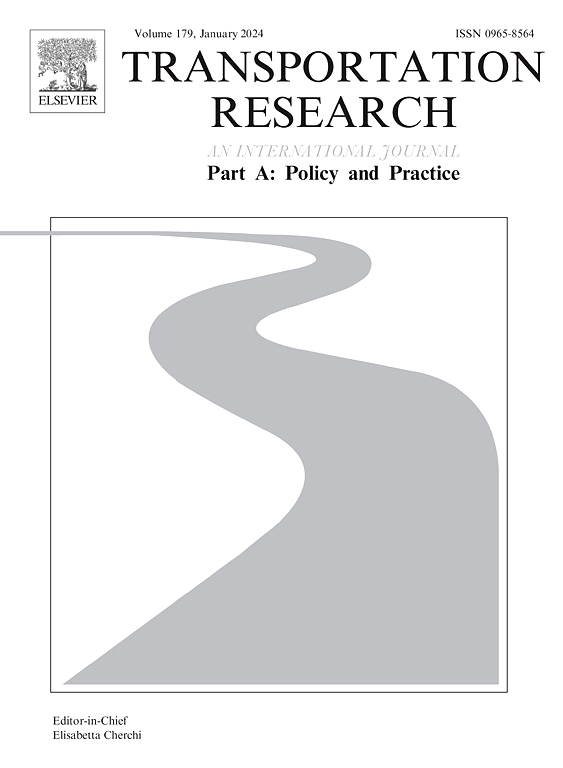Decarbonising last-mile deliveries: When the national strategy fails to meet local needs and expectations
IF 6.3
1区 工程技术
Q1 ECONOMICS
Transportation Research Part A-Policy and Practice
Pub Date : 2025-03-20
DOI:10.1016/j.tra.2025.104435
引用次数: 0
Abstract
This paper explores views and perceptions of 35 local authorities towards potential solutions to decarbonise last-mile deliveries in England and presents their perspectives towards potential challenges and drivers to their implementation. The methodological approach is based on co-design and participatory methods to enable local authorities with different knowledge and expertise to produce, through back-casting, a series of specific actions that can support the implementation of effective measures to decarbonise last-mile deliveries. Results were presented to and stress-tested with 25 councillors, to understand to what extent sustainable transport policies for last-mile deliveries meet political will. Findings show that behaviour change, and collaborative schemes have the potential to have a stronger impact than new and clean technologies in reducing carbon emissions from last-mile deliveries, even though their implementation would be more difficult and less politically appealing. The paper also considers how different levels of governance can contribute to enable the decarbonisation pathway and reveals that lack of power, capacity and capabilities on local freight would be a major challenge for local governments. The paper recommends prioritise stakeholder collaboration, clarifying governance roles, integrating freight into political agendas, adopting systems thinking for planning, and fostering end-consumer behaviour change to accelerate the transition to net-zero last-mile deliveries.
求助全文
约1分钟内获得全文
求助全文
来源期刊
CiteScore
13.20
自引率
7.80%
发文量
257
审稿时长
9.8 months
期刊介绍:
Transportation Research: Part A contains papers of general interest in all passenger and freight transportation modes: policy analysis, formulation and evaluation; planning; interaction with the political, socioeconomic and physical environment; design, management and evaluation of transportation systems. Topics are approached from any discipline or perspective: economics, engineering, sociology, psychology, etc. Case studies, survey and expository papers are included, as are articles which contribute to unification of the field, or to an understanding of the comparative aspects of different systems. Papers which assess the scope for technological innovation within a social or political framework are also published. The journal is international, and places equal emphasis on the problems of industrialized and non-industrialized regions.
Part A''s aims and scope are complementary to Transportation Research Part B: Methodological, Part C: Emerging Technologies and Part D: Transport and Environment. Part E: Logistics and Transportation Review. Part F: Traffic Psychology and Behaviour. The complete set forms the most cohesive and comprehensive reference of current research in transportation science.

 求助内容:
求助内容: 应助结果提醒方式:
应助结果提醒方式:


